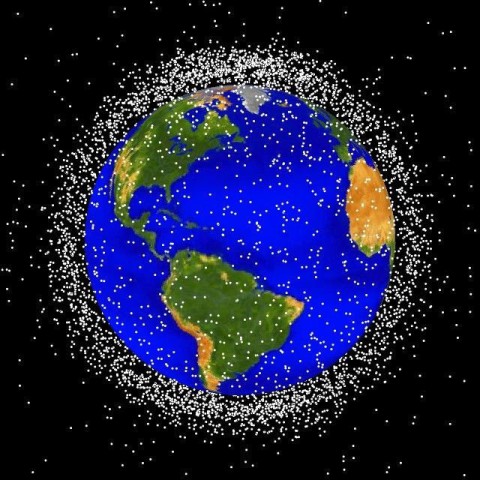Science News Roundup: What is space debris and how dangerous is it?; Russia's Roscosmos, NASA to renew the agreement on space flight seats -Ifax and more
Antibody protection from mild COVID-19 may not last Russian anti-satellite missile test endangers space station crew - NASA An anti-satellite missile test Russia conducted on Monday generated a debris field in low-Earth orbit that endangered the International Space Station and will pose a hazard to space activities for years, U.S. officials said.

Following is a summary of current science news briefs.
What is space debris and how dangerous is it?
Russia's test on Monday to blow up one of its own satellites in space has drawn criticism for endangering the crew of the International Space Station and, experts say, created a debris field that has increased risks to space activities for years. WHAT IS SPACE DEBRIS AND WHERE DOES IT COME FROM?
Russia's Roscosmos, NASA to renew the agreement on space flight seats -Ifax
Russia's space agency Roscosmos and NASA are set to renew an agreement on the mutual provision of seats on space flights, the Interfax news agency reported on Wednesday. Interfax, citing Roscosmos, said the agreement still required government approval.
Tropical worm disease drug for pre-schoolers shown to work in Africa trial
An adjusted version of established drug against schistosomiasis, a tropical parasitic worm disease, has been shown to work in pre-school children, likely offering a cure for millions, Germany's Merck KGaA said. In a late-stage trial in Cote d'Ivoire and Kenya, more than 90% of the participants, infected children aged from three months to six years, had no more parasite eggs in their stool or urine after up to three weeks of treatment, the drugmaker said, adding it would now seek regulatory approval.
Antibody protection after mild COVID-19 may not last; an estimated 100 million people have had long COVID
The following is a summary of some recent studies on COVID-19. They include research that warrants further study to corroborate the findings and that has yet to be certified by peer review. Antibody protection from mild COVID-19 may not last
Russian anti-satellite missile test endangers space station crew - NASA
An anti-satellite missile test Russia conducted on Monday generated a debris field in low-Earth orbit that endangered the International Space Station and will pose a hazard to space activities for years, U.S. officials said. The seven-member space station crew - four U.S. astronauts, a German astronaut and two Russian cosmonauts - were directed to take shelter in their docked spaceship capsules for two hours after the test as a precaution to allow for a quick getaway had it been necessary, NASA said.
U.S. FDA authorizes virtual reality system for reducing back pain
The U.S. Food and Drug Administration on Tuesday authorized a virtual reality (VR) system from Applied VR for reducing lower back pain after a majority of patients in a trial testing the device showed lesser discomfort. The device, EaseVRx, uses cognitive behavioral therapy and other associated methods to help with pain reduction and is meant for self-use at home.
UK study suggests Delta subvariant less likely to cause symptoms
A subvariant of Delta that is growing in Britain is less likely to lead to symptomatic COVID-19 infection, a coronavirus prevalence survey found, adding that overall cases had dropped from a peak in October. The Imperial College London REACT-1 study, released on Thursday, found that the subvariant, known as AY.4.2, had grown to be nearly 12% of samples sequenced, but only a third had "classic" COVID symptoms, compared with nearly a half of those with the currently dominant Delta lineage AY.4.
'Razor-sharp precision': Russia hails anti-satellite weapons test
Russia said on Tuesday it had conducted a weapons test that targeted an old Russian satellite with "razor-sharp precision" and denied allegations by the United States, Britain and NATO that the test had been dangerous for orbiting spacecraft. U.S. officials said Monday's test had generated a debris field in low-Earth orbit that endangered the International Space Station (ISS) and that would pose a hazard to space activities for years.
(This story has not been edited by Devdiscourse staff and is auto-generated from a syndicated feed.)
ALSO READ
My taxable income plummeted to Rs 680 in 2021-22 due to Covid-19 losses: BJP's Chandrasekhar
MSMEs in TN crushed by triple impact of demonetisation, GST, and unplanned COVID lockdowns: Congress
Health News Roundup: Sanofi to overhaul US operations of vaccines, cut jobs; After COVID, WHO defines disease spread 'through air' and more
SC adjourns for July Ramdev's plea for clubbing of FIRs on his remarks on efficacy of allopathy to cure Covid-19
Health News Roundup: USDA confirms cow-to-cow transmission a factor in bird flu spread; After COVID, WHO defines disease spread 'through air' and more










